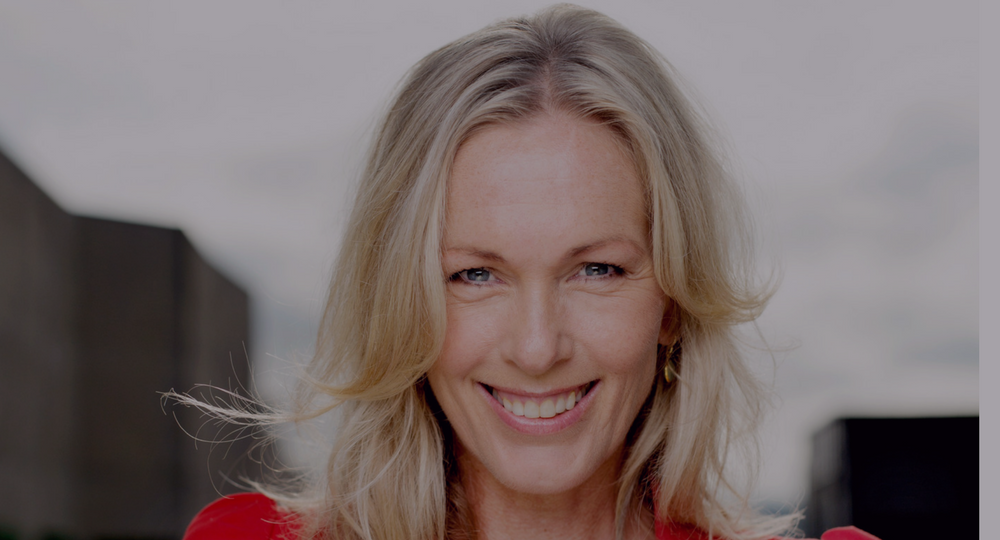Every nation of the world desires not just growth and rapid development, but also sustainability. Experts have said that this can only be achieved through diversity in the workplace, as well as innovation.
Anita Krohn Traaseth, the Chief Executive Officer, Innovation Norway, in an exclusive interview with Amazons Watch Magazine, speaks on the need for women to develop the ability to take risks, sure tips to achieve success, as well as the importance of diversity and innovation in achieving sustainable economic growth. Excerpt:
In your 2014 article titled “If Norwegian Women Can’t Have It All, Can Anyone?” which was published in The Atlantic, you made some valid points on the different perceptions of success among women. According to the article, most women interpret imperfections as disqualifications for leadership positions, rather than thinking about making an impact in a position. What will you say are some of the important points every woman needs to know to achieve success?
5 reflections:
- It’s not rocket science. It is passion, purpose and hard work. Of course, you can do it. Don’t set unnecessary limitations for yourself, if others believe you can do it, so should you?
- There is never a 100% match for anyone to meet all the criteria’s for an open position, apply if you feel it’s right even though you cannot deliver on every aspect they ask for
- Ask colleagues, mentors, friends for guidance throughout your career. Talk about your insecurities and seek insight and advice on how they have solved different situations.
- Don’t be afraid of failure. Your bosses, Boards will judge you on how you deal with failure, not the fact that you do mistakes. You have to make mistakes to develop as a leader.
- Read books, continuing education, seek classical culture pieces, concerts, operas and learn new perspectives. A CEO that never takes a time-out for reflection and continuously asks for corrections, can easily go down a dark lane that’s not healthy for the company or himself/herself.
Inspirational reads that have developed my path as a leader: Adam M Grant, “Give and Take”, Joseph Badaracco “Defining Moments”, Henrik Ibsen “Kongsemnerene”, Conrad “The darkness of the Heart”, John P Kotter “The Iceberg is Melting”.
The clamor for gender equality seems to challenge women to take up top executive positions without necessarily considering the strengths of each individual. In what ways can a balanced message be passed across such that women do not get to jump into roles they cannot handle?
Are you sure that the majority of women jump into roles they cannot handle? That’s not my experience. Usually, they hold back and stick to what they can rather than take risks and stretch? Men take risk all the time. More women should do the same. That’s how a leadership character evolves, no matter what gender.
Having served as managing director at Hewlett-Packard (HP), what unique roles will you say women can explore in the tech industry?
A woman can explore any roles in the tech industry. From tech engineer to CEO and investor. Meg Whitman’s career path and her leadership style were a huge inspiration for me when I was the first female MD of HP Norway.
Currently, innovation is a key factor in every business and economy. In what ways do you think women and youths especially in developing nations, can break away from the monotony of traditional systems and embrace innovative ideas?
Diversity is key to reach innovation in every business and economy. An increase of more women and youth, alongside multicultural backgrounds, integration of immigrants and people with disabilities, is needed in almost every company, management group, and industry to be able to develop and stay relevant for the future. Leading and capitalizing on diverse teams to bring forward innovation is a huge challenge for any traditional leader. Therefore we need more role models, new global disruptive leaders like Arianna Huffington, Mark Zuckerberg and Jack Ma to listen and learn how they build their leadership philosophy and how they run their operations, as they are leading stars for many of the old organizations that are in transformation. Also, those who already hold the power, who sits at the table of decisions, are the most effective ones to bring in diversity, show others the path for change. Like Mike Bloomberg and his visions for a sustainable future.
Given your busy schedule, how do you balance work and family life?
Well, I’m not very good at that. Work is passion and I don’t believe in work-life balance if it means 50/50. When you take the personal choice and decision it is, to take the journey becoming a CEO, an entrepreneur, a politician, a high-level sports profile, it demands that you embrace chaos and imbalance. Your life will not per se be “normal”. When you have three children, a husband that loves his job too, it takes a village to “balance”. And when I understood that, when I let go of control and let my friends and family lean in to be part of our crazy life, I really enjoyed it. Also, bringing my husband and three daughters into my work life has been rewarding. When I was appointed as the CEO of Innovation Norway, I made a deal with my family, They granted me one year of not taking on duties at home to make sure I could deliver in the new job. That was great! After that first year, I had to lean in again on the domestic tasks.
I remember a dialogue I had with my daughter Milla when she was 3,5 years. I stressed out of the house and said we had to hurry up as mamma was going to meet her boss, Hans (my HP EMEA boss), then Milla stopped, looked at me and said: “Mama, can boys be bosses?”.
As CEO of Innovation Norway, what would you like to see differently in Norway in the next five years?
After almost 45 years of continuous growth, and as a result, one of the world’s richest and happiest countries in the eyes of UN reports, Norway is in change. We got a massive wake-up call in 2014 with the drop in oil prices and development. For all the creators and innovators, change is exciting times. We need to build up a new “pole position”, a new narrative wider than being the oil and gas nation, famous for salmon and fjords, and create a more diversified economy if we are to safeguard one of the most attractive and democratic welfare systems in the world. I see a huge potential for Norway to communicate and offer many innovative solutions to answer UN’s 17 global agenda on sustainability goals (SDG’s), in new areas like medtech, biotech, clean energy, fintech, and edtech. And not to forget, what we can deliver from the ocean space. Norway’s biggest incubator so far has been the North Sea, our “unicorn” is the world’s largest pension fund. The good news about building up a high tech oil and gas industry since 1971, is that the competence and knowledge are extremely transferable to new high tech areas like clean energy, medicine, bio-economy and circular economy. We are now in transition. Norway has the potential to become, within the next five years, one of the most attractive testbeds for pioneering sustainable high tech solutions connected to UNs SDGs. We are a small country, we do not offer a big market, but we can be an important testbed. On the other hand, Norway needs to improve how we scale our solutions and companies abroad. We need an export strategy and we need to tell the world what we can bring to the table and invite global investors to co-invest and scale together.
In your opinion, is there a relationship between women and sustainable development? If yes, are there evidence-based proofs to such a relationship and a way of validating this proof?
Indeed. UN’s youngest organization, UN Women is one of the most important organizations pushing the importance of women and sustainable development. Take one example. United Nations Organization for Food and Nutrition Ring (FAO) has calculated that if women got the same the possibilities in agriculture as men, the number that starves in the world would be reduced by 100-150 million. When women get equal access to input factors, such as technology, fertilizer, markets and capital they also have a big impact on economic growth in developing countries. In other words, gender equality essential for poverty reduction, food security, nutrition and economic development.
How far would you say Innovation Norway has fulfilled its mandate?
Norway has had more than 150 years of history building up support systems, loans and grants to create more sustainable businesses and growth. In 2003 Innovation Norway was formed to make it easier for entrepreneurs, growth companies, and clusters to apply for different schemes. We also have an important mandate as being a political advisor to the Government as we listen in to businesses all over Norway and are present in more than 30 countries abroad. We also have a mandate to build Brand Norway, to ensure InvestIn Norway, Export Norway and VisitNorway. Our mandate of “assisting Norwegian businesses grow and find new markets” will be a constant, important task that never will be fulfilled. We do see, and measure, that our tools and employees are continuously improving in fulfilling this mandate – Also, the mandate has never been more important than now, to a country that has been relying too heavily on one sector to build a more diversified economy.
What are some of the opportunities startups in Norway should look forward to?
There are a number of opportunities to look forward to for the Norwegian startups. The digitalization of services makes the world accessible from anywhere, the automatization of processes makes the hourly rate of your employees less important than before, and the decrease in the main industry that has employed and educated thousands of technicians, engineers and others gives access to a whole new range of talents.
Combined with our deep technological capacities, our open society based on trust and with a rapidly increasing interest in assisting and investing in startups, they definitely have great opportunities in front of them. A majority of Norwegian startups have potentially scalable, innovative and high tech solutions for a global market. Their work and products are based on solid work. But we lack the culture and training on how to sell it. To articulate and pitch to different cultures. We are, what I call us, «A Tacit Innovation Nation». We are basically business to business-oriented, we’re not as consumer-oriented as some of our neighbours like Sweden, so much of our capabilities and solutions run in as unknown back-office engines of known solutions and companies.
What’s the best way for the readers of Amazons Watch Magazine to connect with you?
Instagram: @tinteguri
Twitter: @anitakrohntraaseth
Facebook: Anita Krohn Traaseth




